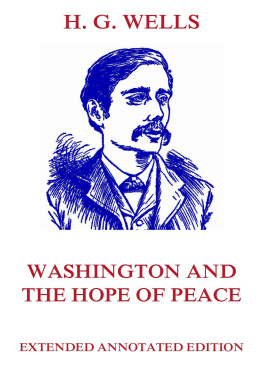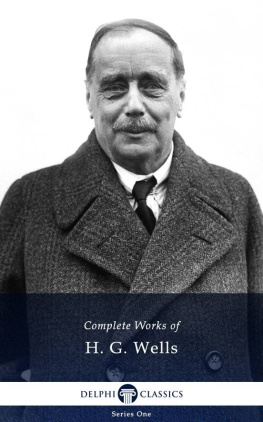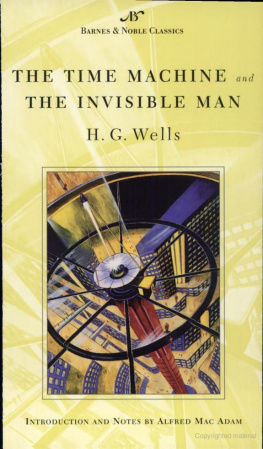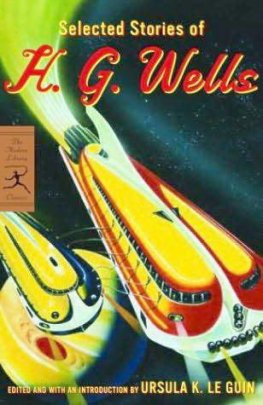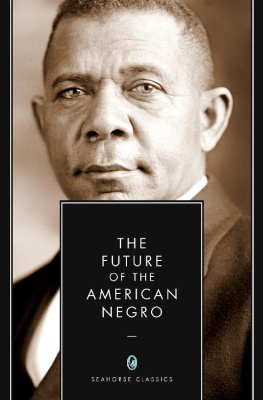Washington and the Hope of Peace
H. G. Wells
Contents:
H. G. Wells A Major Prophet Of His Time
Washington And The Hope Of Peace
Introduction
I. The Immensity Of The Issue And The Triviality Of Men
Ii. Armaments: The Futility Of Mere Limitation
Iii. The Trail Of Versailles: Two Great Powers Are Silent And Absent
Iv. The Unknown Soldier Of The Great War
V. The President At Arlington
Vi. The First Meeting
Vii. What Is Japan?
Viii. China In The Background
Ix. The Future Of Japan
X. "Security" The New And Beautiful Catchword
Xi. France In The Limelight
Xii. Thus Far
Xiii. The Larger Question Behind The Conference
Xiv. The Real Threat To Civilization
Washington and the Hope of Peace, H. G. Wells
Jazzybee Verlag Jrgen Beck
86450 Altenmnster, Loschberg 9
Germany
ISBN: 9783849641702
www.jazzybee-verlag.de
www.facebook.com/jazzybeeverlag
admin@jazzybee-verlag.de
H. G. Wells A Major Prophet Of His Time
By Edwin E. Slosson
We are in the beginning of the greatest change that humanity has ever undergone. There is no shock, no epoch-making incidentbut then there is no shock at a cloudy daybreak. At no point can we say, "Here it commences, now; last minute was night and this is morning." But insensibly we are in the day. If we care to look, we can foresee growing knowledge, growing order and presently a deliberate improvement of the blood and character of the race. And what we can see and imagine gives us a measure and gives us faith for what surpasses the imagination. It is possible to believe that all the past is but the beginning of a beginning, and that all that is and has been is but the twilight of the dawn. It is possible to believe that all that the human mind has ever accomplished is but the dream before the awakening. We cannot see for there is no need for us to see, what this world will be like when the day has fully come. We are creatures of the twilight. But it is out of our race and lineage that minds will spring that will reach back to us in our littleness to know us better than we know ourselves, and that will reach forward fearlessly to comprehend this future that defeats our eyes. All this world is heavy with the promise of greater things, and a day will come, one day in the unending succession of days, when beings, beings who are now latent in our thoughts and hidden in our loins, shall stand upon this earth as one stands upon a footstool, and shall laugh and reach out their hands amid the stars.The Discovery of the Future.
IS Wells also among the prophets ? Surely, and none with better right, even though we use the word "prophet" in its narrowest and most ordinary sense as one who foretells the future. He has foretold many futures for us, some utterly abhorrent, others more or less attractive. If we shudder at the thought of humanity on a freezing world fighting a losing battle with gigantic crustaceans as in The Time Machine, or being suffocated on a blazing world as in The Star, or being crushed under the tyranny of an omnipotent trust as in When the Sleeper Wakesif none of these please us, then we have the option of a businesslike and efficient organization of society under the domination of the engineer as in Anticipations, or a socialistic state under the beneficent sway of the Samurai as in A Modern Utopia, or an instantaneous amelioration of human nature as In me Bays of the Comet. In thus presenting various solutions to the world problem Wells is not inconsistent. Every complicated equation has several roots, some of them imaginary. In solving a physical problem the scientist begins by disentangling the forces involved and then taking them one at a time, calculates what would be the effect if the other forces did not act.
So Wells is applying the scientific method to sociology when he attempts to isolate social forces and deal with them singly. If nothing intervenes to divert it, says the hydraulic engineer, the water of this mountain stream will develop such a momentum on reaching the valley. If no limitations are placed upon the consolidation of capital, says Mr. Wells, we may have a handful of directors ruling the world, as depicted in When the Sleeper Wakes. In its power to forecast the future science finds both its validation and justification. By this alone it tests its conclusions and demonstrates its usefulness. In fact, the sole object of science is prophecy, as Ostwald and Poincare make plain. The mind of the scientific man is directed forward and he has no use for history except as it gives him data by which to draw a curve that he may project into the future. It is, therefore, not a chance direction of his fancy that so many of Wells's books, both romances and studies, deal with the future. It is the natural result of his scientific training, which not only led him to a rich unworked field of fictional motives, but made him consider the problems of life from a novel and very illuminative point of view. He gave definite expression to this philosophy in a remarkable address on "The Discovery of the Future," delivered at the Royal Institution of London, January 24, 1902. Here he shows that there is a growing tendency in modern times to shift the center of gravity from the past to the future and to determine the moral value of an act by its consequences rather than by its relation to some precedent. The justification of a war, for instance, may either be by reference to the past or to the future; that is, it may be based either upon some supposititious claim and violated treaty, or upon the assumed advantage to one or both parties. This idea, that in the moral evaluation of an act its results should be taken into consideration, has been popularly ascribed to the Jesuits, but since they have repeatedly and indignantly denied that it ever formed part of their teaching, it is questionable whether they could claim it now when it is becoming fashionable.
At any rate, it is interesting to note that Wells gave very clear expression to this pragmatic principle five years before the publication of Pragmatism, by James. Wells defines two divergent types of mind by the relative importance they attach to things past or things to come. The former type he calls the legal or submissive mind, "because the business, the practice and the training of a lawyer dispose him toward it; he of all men must most constantly refer to the law made, the right established, the precedent set, and most consistently ignore or condemn the thing that is only seeking to establish itself." In opposition to this is "the legislative, creative, organizing, masterful type," which is perpetually attacking and altering the established order of things; it is constructive and "interprets the present and gives value to this or that entirely in relation to things designed or foreseen." The use of the term "legislative" for this latter type is confusing, at least to an American, because unfortunately most of our legislators are lawyers and have minds of the legal or conventional type. "Scientific" would be a better term than 'legislative," because most of our real revolutions in thought and industry originate in the laboratory.
In his Modern Utopia Wells introduces a more complete classification of mankind into (1) the Poetic, that is, the creative and original genius, often erratic or abnormal; (2) the Kinetic, that is, the efficient, energetic, "business man" type; (3) the Dull, "the people who never seem to learn thoroughly or hear distinctly or think clearly," and (4) the Base, those deficient in moral sense. The first two categories of Wells, the Poetic and Kinetic, correspond roughly to Ostwald's Romanticist and Classicist types of scientific men. I have laid stress upon Wells's point of view and classification of temperaments because it seems to me that it gives the clue to his literary work. This is voluminous and remarkably varied, yet thru all its forms can be traced certain simple leading motives. Indeed I am unable to resist the temptation to formulate his favorite theme as: The reaction of society against a disturbing force.

